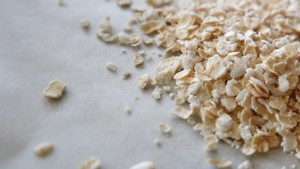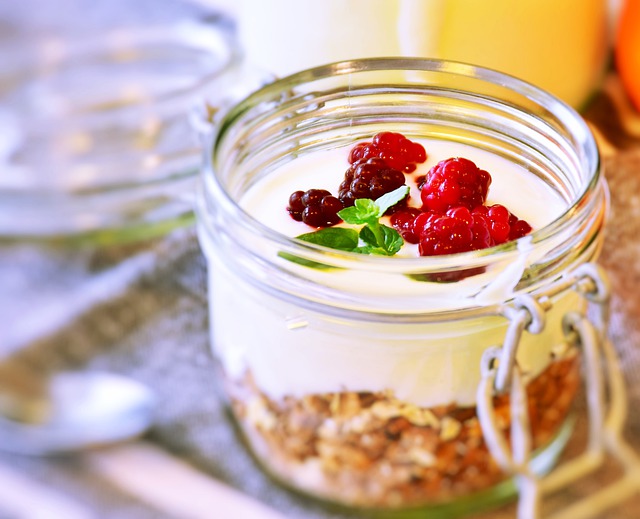Oatmeal has always been a hot topic when it comes to nutrition. One of the latest crazes is actually “cold” oatmeal, otherwise known as overnight oatmeal or overnight oats.
This really isn’t something new, it’s just a resurgence of a classic with a new name. Have you ever heard of muesli? This was the original overnight oatmeal!
The story goes that muesli was developed by a Swiss doctor for his patients back in the early 1900s. Originally, it was a diet food and served as an evening meal, but it has evolved into a breakfast food that is usually prepared the night before so that it is ready to eat cold in the morning. Overnight oatmeal is simply uncooked oatmeal mixed with other ingredients — usually milk or fruit juice and fresh fruits, raisins, grains, and/or nuts that then all come together in the refrigerator overnight.
Over the past few years, we’ve been hearing that eating raw or uncooked flour can be a food safety risk and many wonder if raw oatmeal could pose the same problem.
Flour is made from milling wheat that was grown outdoors; it does have the potential to contain bacteria that could make someone sick. This usually doesn’t happen because flour is primarily used in foods that are cooked and those bacteria are rendered harmless by heat. The concern is when people eat raw dough or other uncooked or undercooked foods that contain flour.
 Uncooked oatmeal is another story. According to the folks at Quaker Oats, unless there is a dietary restriction requiring soft foods, oats and oat bran can be eaten raw. While oats are also obviously grown outdoors, oatmeal is made from oat groats, which have been steamed. This heating reduces the risk of pathogens in oat products.
Uncooked oatmeal is another story. According to the folks at Quaker Oats, unless there is a dietary restriction requiring soft foods, oats and oat bran can be eaten raw. While oats are also obviously grown outdoors, oatmeal is made from oat groats, which have been steamed. This heating reduces the risk of pathogens in oat products.
There are different types of oatmeal and all have been steamed. Rolled oats are often called old-fashioned oats. They have been steamed and rolled to make flat flakes. Quick oats or 1-minute oats are groats that are cut into two or three pieces and then steamed and rolled. This process allows them to cook more quickly. Steel-cut oats are whole oats that are cut but not rolled into flakes and they take longer to cook. “Instant” oatmeal is made of groats that are steamed, cut into small pieces, steamed again, and rolled.
There are many packaged varieties of muesli available in grocery and specialty stores. One version has fruit already mixed with the oatmeal and you simply add your milk or other liquid to the container and put it in the refrigerator. Another version of prepared muesli can be mixed with the milk and served almost immediately—saving the time of the overnight soak. Be sure to read the ingredients labels on these products for added ingredients that you may not want.
For a less expensive (and more creative) way to make your own muesli, you can try a base recipe like this one and then vary the ingredients based on your personal preferences or what’s in your cupboard/refrigerator at the time. The variations are endless. The only food safety caution to use when eating overnight oatmeal is that it should be put in the refrigerator for the overnight soak.
Overnight oatmeal can be a great ready-to-go nutritious breakfast. In a typical bowl, you get 4 grams of dietary fiber, 5 grams of protein, and only 3 grams of fat when you start with just a ½ cup of uncooked rolled oats. Then add your milk, fruits, and nuts for additional nutrition bonus.
Want to try them for yourself? Check out this great muesli recipe!
By Cheryle Jones Syracuse, MS, Professor Emeritus at The Ohio State University
Copyright foodandhealth.com, reprinted with permission.
If you prefer a hot breakfast, try Easy Overnight Oatmeal.

